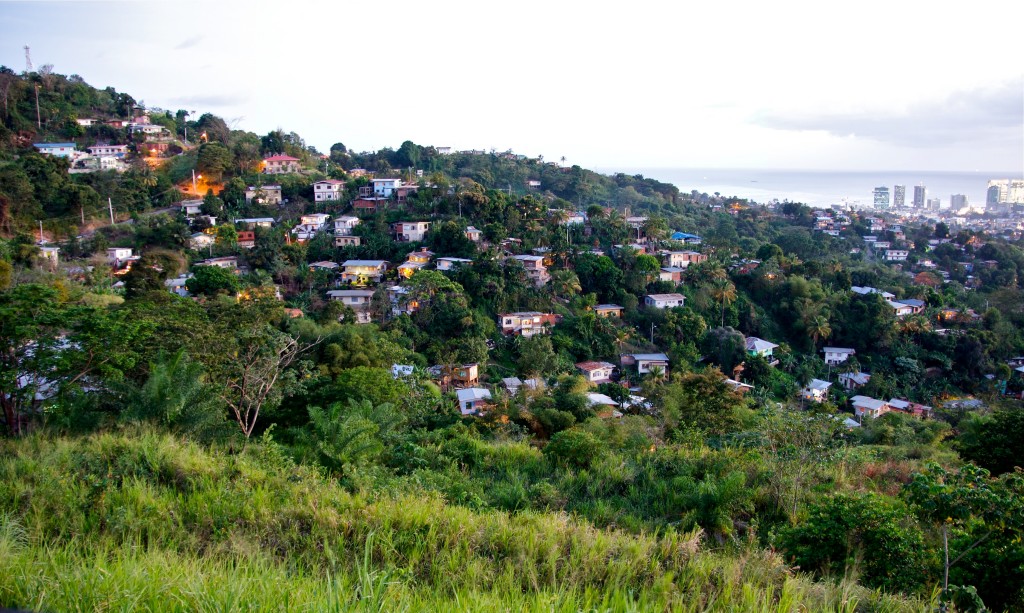
If you have spent any time at all in Port of Spain, you will know — like this poem knows — that it is worth writing about.
“Connel, Morning” comes from the section of You Have You Father Hard Head that focuses on travel: international to inside your backyard, these poems call on their travellers to remark on what is both remarkable and fascinatingly mundane, from flies to skyscrapers, doubles vendors to the devil in the details. Here is a poem that holds it all in the size of a postage stamp calling you into the nation’s capital.
The speaker of the poem has been summoned into town to retrieve “a lost belonging / years of sensitive data”… a laptop, maybe, filled with private correspondences and splendid assignations? The poem doesn’t say, because its speaker is far more entranced with the sights, smells, sounds, and every other possible sensory configuration of Port of Spain waking up in front of him. It’s a wildly imaginative poem, not because it traces for most Trinbagonians an imaginary space: no, the space is as real as you reading this, or me writing. The bravery of the poem, and the innovation, is in giving us a space we know well and saying, with loving audacity, here, hold this. Look at we place, again, closer. Look and listen to this gridwork of dirty streets, doubles vendors, metal-grille shopfront, government plazas, all near to dubious, reclaimed waterfront, and tell me you eh love this place bad, as much as you cuss it.
“the stream of collared workers emptying
from the mileslong procession of redbanded maxis
as far as the eye can see
the sun has risen in my face
the hint of bagasse still wafting
and this is home”
Maybe you’ve made that journey into town from Arima, from Chaguanas, from Vessigny or Basse Terre, day in day out, Mondays to Fridays, dreading that fold-out seat in the scrunched-up small maxi, or the big ones with the lump where your feet should fit neatly. Maybe Port of Spain is nothing but day wuk and slog and tedium to you; if so the poem’s strength is that it doesn’t preach to you in an attempt to force beauty where there is only, mostly rigour. It is the speaker’s rigour, here, to bring tenderness to the urban, rank, unwashed places of their capital, searching hard for love, surprised and something like elated to find it — to paraphrase another great poet, much like a hibiscus sprouting from concrete.
This is the fifth of seven reflections in “and i am the man / laughing”, close readings of the poems of Colin Robinson. Each of these poems appears in Colin’s debut collection, You Have You Father Hard Head (Peepal Tree Press, 2016). Robinson, a beloved and pioneering poet, activist and columnist, died on March 4th, 2021 following a prolonged battle with cancer. He was a powerful creative and transformative force, an ally without comparison, and a truly irreplaceable comrade. He will be missed, and his work will live long and impactfully.






